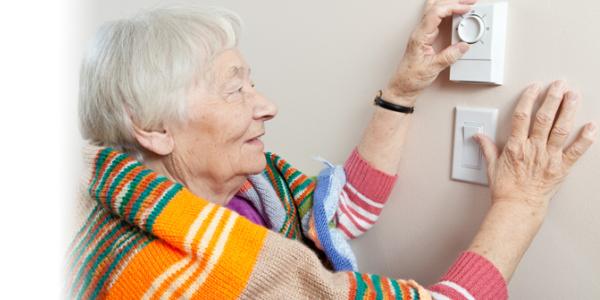While cold sensitivity could possibly be a sign of a health problem, such as hypertension or diabetes, many healthy adults also find their winters feeling colder as they age.
Studies show that older adults tend to have slightly lower body temperatures than younger adults. Over time, your body is less able to regulate its own temperature. The fat layer under your skin may thin as you age, making you less able to conserve body heat. Your blood circulation—especially in your hands and feet—can also decrease as your blood vessels lose elasticity.
If your body is unable to generate enough heat to keep you warm, it’s important to find other ways of staying at a safe and comfortable temperature this winter. There are simple ways to keep yourself warm this season:
- Keep your heater on. While it might be tempting to save on heating costs, be sure to set your heat to at least 68°F. If you’re worried about your heating bills, close the vents and doors to rooms you aren’t using. You can also insulate drafty windows and doors to help keep the cold air out.
- Dress warmly. Remember to dress in warm layers, even when you are staying inside. Socks, gloves, and hats are especially important when venturing outside, as you lose more blood circulation in your extremities.
- Maintain a healthy weight. If you are underweight, you could have less body fat under your skin to keep you warm. Talk with your doctor about a healthy weight for your body, and make sure to eat enough food to stay healthy.
While aging adults often experience increased sensitivity to the cold, it usually does not require immediate medical assistance. However, pay attention to the symptoms of hypothermia, as older adults are at an increased risk. While hypothermia typically occurs in very cold temperatures, even cool temperatures can be dangerous to a person who is exposed to the cold for an extended period of time. And, if your feet and hands are much colder than the rest of your body, or your fingers and toes go numb or change colors, talk to your doctor. This usually indicates Raynaud’s Phenomenon, a condition that is often mild and harmless but could also be a symptom of something more serious.
This article first appeared in the January 2024 edition of the HealthPerks newsletter.

